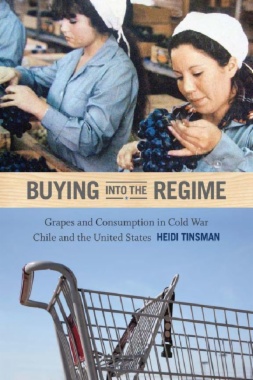Buying into the Regime is a transnational history of how Chilean grapes created new forms of consumption and labor politics in both the United States and Chile. After seizing power in 1973, Augusto Pinochet embraced neoliberalism, transforming Chile’s economy. The country became the world's leading grape exporter. Heidi Tinsman traces the rise of Chile's fruit industry, examining how income from grape production enabled fruit workers, many of whom were women, to buy the commodities—appliances, clothing, cosmetics—flowing into Chile, and how this new consumerism influenced gender relations, as well as pro-democracy movements. Back in the United States, Chilean and U.S. businessmen aggressively marketed grapes as a wholesome snack. At the same time, the United Farm Workers and Chilean solidarity activists led parallel boycotts highlighting the use of pesticides and exploitation of labor in grape production. By the early-twenty-first century, Americans may have been better informed, but they were eating more grapes than ever.
- Contents
- Acknowledgments
- Introduction
- One. The Long Miracle: Collaborations in the Chilean Fruit Industry, 1900– 1990
- Two. Fables of Abundance: Grape Workers and Consumption in Chile
- Three. The Fresh Sell: Marketing Grapes in the United States
- Four. Boycott Grapes! : Challenges by the United Farm Workers and the Chile Solidarity Movement
- Five. Not Buying It: Democracy Struggles in Chile
- Epilogue
- Notes
- Bibliography
- Index

